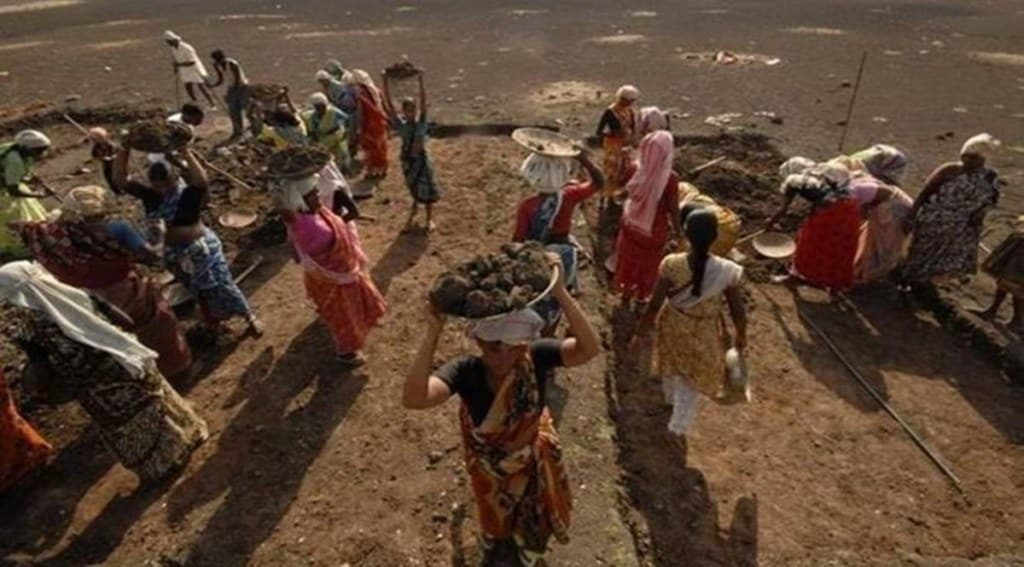The initial Budget allocation for Mahatma Gandhi National Rural Employment Guarantee Scheme (MG-NREGS) will be insufficient yet again in FY23, experts said.
The Rs 73,000 crore allocation in the Budget for 2022-23, 25% less than the revised estimate of Rs 98,000 crore for FY22, would meet the funding need for just around 30 days of work for every household against the scheme’s 100-day mandate, considering the same 6.75 crore households who have worked so far in FY22 work in FY23 as well.
The fund size will get squeezed to around Rs 54,650 crore considering pending liabilities of Rs 18,350 crore from previous years, towards wage and material, is to be cleared next year.
This, however, is not taking into consideration the likely rise in the average cost per day per person that stood at Rs 289.98, as of February 2, FY22, compared with Rs 265.75 in the whole of FY21 and Rs 235.28 in FY20.
“Insufficient allocation in the BE stage will again mean the same old story — the bulk of the money will get exhausted in the first six-seven months into the financial year, then long delays in payments and eventually, grassroots implementation to come to a standstill by September-October and the entire machinery goes slow on implementation. Supplementary allocations generally come towards the end of the financial year and by then work gets massively affected,” said Debmalya Nandy of the MGNREGA Sangharsh Morcha.
Rajendran Narayanan, assistant professor, Azim Premji University, said, “Given the massive crisis of unemployment, it’s shocking that the allocation under the scheme is lowered compared even to the revised allocation of FY22. This appears like a systematic pattern to discourage workers from being employed under the scheme.”
Of course, the government releases funds for the demand-driven scheme as and when required.
In FY21, the outlay for the scheme was increased in two tranches to Rs 1,11,170 crore from the original allocation of Rs 61,500 crore (BE) to meet the rise in demand for work following the mass migration of labour from urban centres to rural areas in the aftermath of the first Covid wave.
For the current fiscal also, the allocation has been raised by Rs 25,000 crore at the RE stage from Rs 73,000 crore allocated in the original BE stage, again to meet higher demand.
Against the scheme’s mandate to provide at least 100 days of ‘wage employment’ in a financial year to every rural household, 44.75 days of employment has so far been provided in the current fiscal on an average, to rural households compared with 51.52 days in the last fiscal and 48.4 days in 2019-20.
A total of 302.16 crore person-days of work have been generated under the scheme so far in the current fiscal year compared with 389.16 crore in FY21, 265.35 crore in FY20 and 267.96 crore in FY19.


